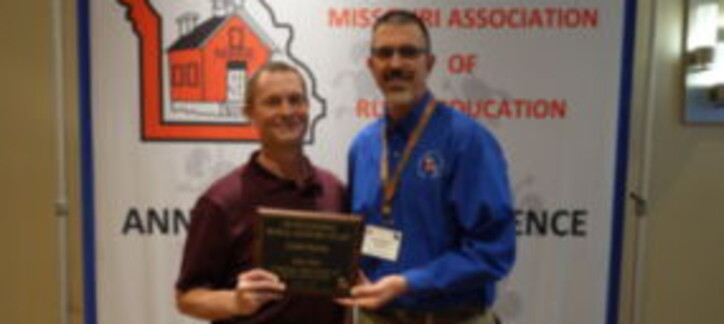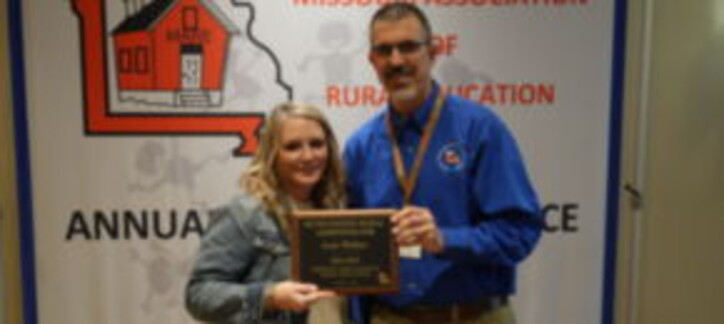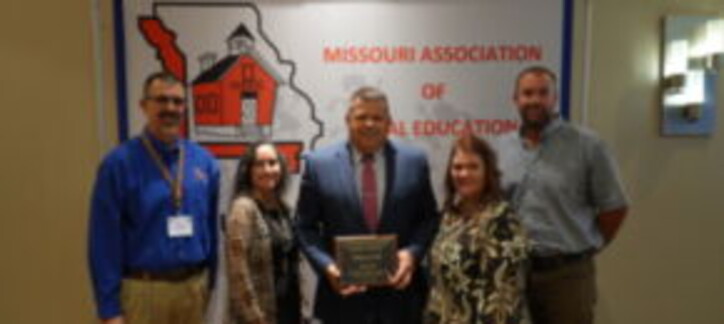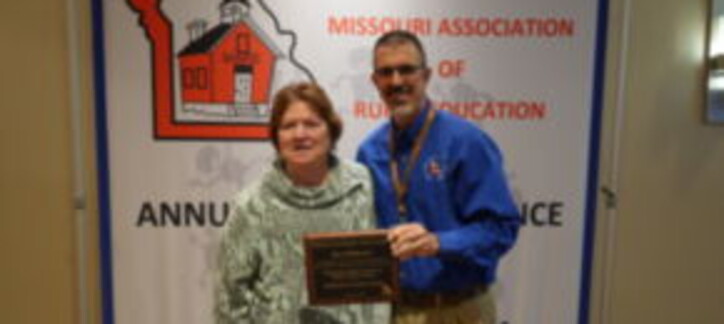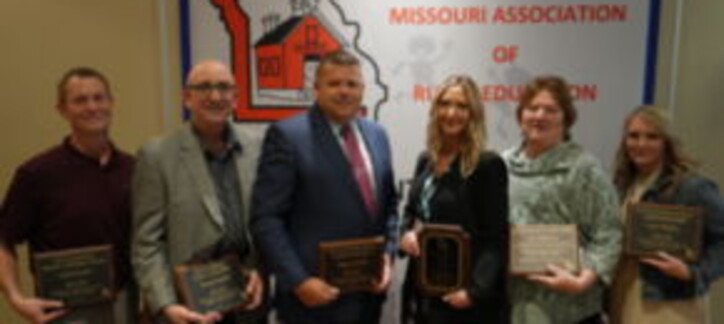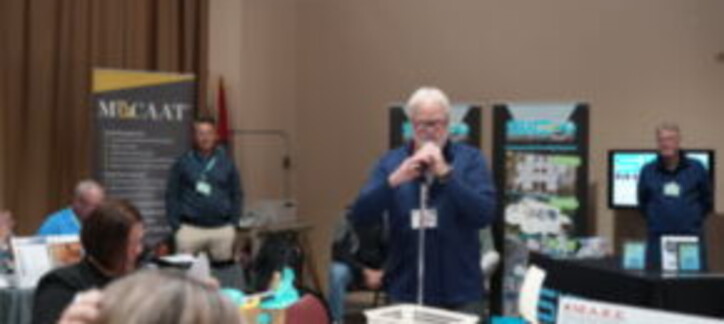National Rural Education News
We are going to use this article on the website to provide regular updates, news and notes and other items of interest pertaining to education at the federal level. We will also include information from our federal lobbyists in Washington. Dr. Allen Pratt and the good folks at NREA do an outstanding job of representing rural education at the federal level. They provide weekly updates and lots of useful information for rural schools.
Access the link below to see the latest news from the National Rural Education Association.
NREA Weekly Update - November 8, 2024
NREA Weekly Update - November 1, 2024
NREA Weekly Update - October 25, 2024
NREA Weekly Update - October 18, 2024
NREA Weekly Update - October 11, 2024
NREA Weekly Update - October 4, 2024
NREA Weekly Update - September 27, 2024
NREA Weekly Update - September 20, 2024
NREA Weekly Update - September 13, 2024
NREA Weekly Update - September 6, 2024
NREA Weekly Update - August 30, 2024
NREA Weekly Update - August 23, 2024
NREA Weekly Update - August 16, 2024
NREA Weekly Update - August 9, 2024
NREA Weekly Update - August 2, 2024
NREA Weekly Update - July 26, 2024
NREA Weekly Update - July 19, 2024
NREA Weekly Update - July 12, 2024
NREA Weekly Update - July 5, 2024
NREA Weekly Update - June 28, 2024
NREA Weekly Update - June 21, 2024
NREA Weekly Update - June 14, 2024
NREA Weekly Update - June 7, 2024
NREA Weekly Update - May 31, 2024
NREA Weekly Update - May 24, 2024
NREA Weekly Update - May 17, 2024
NREA Weekly Update - May 10, 2024
NREA Weekly Update - May 3, 2024
NREA Weekly Update - April 26, 2024
NREA Weekly Update - April 19, 2024
NREA Weekly Update - April 12, 2024
NREA Weekly Update - April 5, 2024
NREA Weekly Update - March 29, 2024
NREA Weekly Update - March 22, 2024
NREA Weekly Update - March 15, 2024
NREA Weekly Update - March 8, 2024
NREA Weekly Update - March 1, 2024
NREA Weekly Update - February 23, 2024
NREA Weekly Update - February 16, 2024
NREA Weekly Update - February 9, 2024
NREA Weekly Update - February 2, 2024
NREA Weekly Update - January 26, 2024
NREA Weekly Update - January 19, 2024
NREA Weekly Update - January 5, 2024
NREA Weekly Update - October 27, 2023
NREA Weekly Update - October 20, 2023
NREA Weekly Update - October 13, 2023
NREA Weekly Update - October 6, 2023
NREA Weekly Update - September 29, 2023
NREA Weekly Update - September 22, 2023
NREA Weekly Update - September 15, 2023
NREA Weekly Update - September 8, 2023
NREA Weekly Update - September 1, 2023
NREA Weekly Update - August 25, 2023
NREA Weekly Update - August 18, 2023
NREA Weekly Update - August 11, 2023
NREA Weekly Update - August 4, 2023
NREA Weekly Update - July 28, 2023
NREA Weekly Update - July 21, 2023
NREA Weekly Update - July 14, 2023
NREA Weekly Update - July 7, 2023
NREA Weekly Update - June 30, 2023
NREA Weekly Update - June 23, 2023
NREA Weekly Update - June 16, 2023
NREA Weekly Update - June 9, 2023
NREA Weekly Update - June 2, 2023
NREA Weekly Update - May 26, 2023
NREA Weekly Update - May 19, 2023
NREA Weekly Update - May 12, 2023
NREA Weekly Update - May 5, 2023
NREA Weekly Update - April 28, 2023
NREA Weekly Update - April 21, 2023
NREA Weekly Update - April 14, 2023
NREA Weekly Update - April 7, 2023
NREA Weekly Update - March 31, 2023
NREA Weekly Update - March 24, 2023
NREA Weekly Update - March 17, 2023
NREA Weekly Update - March 10, 2023
NREA Weekly Update - March 3, 2023
NREA Weekly Update - February 24, 2023
NREA Weekly Update - February 17, 2023
NREA Weekly Update - February 10, 2023
NREA Weekly Update - February 3, 2023
NREA Weekly Update - January 27, 2023
NREA Weekly Update - January 20, 2023
NREA Weekly Update - January 13, 2023
NREA Weekly Update - January 6, 2023
NREA Weekly Update - December 16, 2022
NREA Weekly Update - December 2, 2022
NREA Weekly Update - November 18, 2022
NREA Weekly Update - November 11, 2022
NREA Weekly Update - November 4, 2022
NREA Weekly Update - October 28, 2022
NREA Weekly Update - October 14, 2022
NREA Weekly Update - October 7, 2022
NREA Weekly Update - September 30, 2022
NREA Weekly Update - September 23, 2022
NREA Weekly Update - September 16, 2022
NREA Weekly Update - September 9, 2022
NREA Weekly Update - September 2, 2022
NREA Weekly Update - August 26, 2022
NREA Weekly Update - August 19, 2022
NREA Weekly Update - August 12, 2022
NREA Weekly Update - August 5, 2022
NREA Weekly Update - July 29, 2022
NREA Weekly Update - July 22, 2022
NREA Weekly Update - July 15, 2022
NREA Weekly Update - July 8, 2022
NREA Weekly Update - July 1, 2022
NREA Weekly Update - June 24, 2022
NREA Weekly Update - June 17, 2022
NREA Weekly Update - June 10, 2022
NREA Weekly Update - June 3, 2022
NREA Weekly Update - May 27, 2022
NREA Weekly Update - May 20, 2022
NREA Weekly Update - May 13, 2022
NREA Weekly Update - May 6, 2022
NREA Weekly Update - April 29, 2022
NREA Weekly Update - April 22, 2022
NREA Weekly Update - April 15, 2022
NREA Weekly Update - April 8, 2022
NREA Weekly Update - April 1, 2022
NREA Weekly Update - March 25, 2022
NREA Weekly Update - March 18, 2022
NREA Weekly Update - March 11, 2022
NREA Weekly Update - March 4, 2022
NREA Weekly Update - February 25, 2022
NREA Weekly Update - February 11, 2022
NREA Weekly Update - February 4, 2022
NREA Weekly Update - January 28, 2022
NREA Weekly Update - January 21, 2022
NREA Weekly Update - January 14, 2022
NREA Weekly Update - January 7, 2022
NREA Weekly Update - December 17, 2021
NREA Weekly Update - December 10, 2021
NREA Weekly Update - December 3, 2021
NREA Weekly Update - November 19, 2021
NREA Weekly Update - November 5, 2021
NREA Weekly Update - October 29, 2021
NREA Weekly Update - October 22, 2021
NREA Weekly Update - October 8, 2021
NREA Weekly Update - October 1, 2021
NREA Weekly Update - September 24, 2021
NREA Weekly Update - September 17, 2021
NREA Weekly Update - September 10, 2021
NREA Weekly Update - September 3, 2021
NREA Weekly Update - August 27, 2021
NREA Weekly Update - August 20, 2021
NREA Weekly Update - August 13, 2021
NREA Weekly Update - August 6, 2021
NREA Weekly Update - July 30, 2021
NREA Weekly Update - July 23, 2021
NREA Weekly Update - July 16, 2021
NREA Weekly Update - July 9, 2021
NREA Weekly Update - July 2, 2021
NREA Weekly Update - June 25, 2021
NREA Weekly Update - June 18, 2021
NREA Weekly Update - June 11, 2021
NREA Weekly Update - June 4, 2021
NREA Weekly Update - May 28, 2021
NREA Weekly Update - May 21, 2021
NREA Weekly Update - May 14, 2021
NREA Weekly Update - May 7, 2021
NREA Weekly Update - April 30, 2021
NREA Weekly Update - April 23, 2021
NREA Weekly Update - April 16, 2021
NREA Weekly Update - April 9, 2021
NREA Weekly Update - April 2, 2021
NREA Weekly Update - March 19, 2021
NREA Weekly Update - March 12, 2021
NREA Weekly Update - March 5, 2021
NREA Weekly Update - February 26, 2021
NREA Weekly Update - February 19, 2021
NREA Weekly Update - February 12, 2021
NREA Weekly Update - February 5, 2021
NREA Weekly Update - January 29, 2021
NREA Weekly Update - January 22, 2021
NREA Weekly Update - January 15, 2021
NREA Weekly Update - January 8, 2021
NREA Weekly Update - January 1, 2021
NREA Weekly Update - December 11, 2020
NREA Weekly Update - December 4, 2020
NREA Weekly Update - November 20, 2020
NREA Weekly Update - November 13, 2020
NREA Weekly Update - November 6, 2020
NREA Weekly Update - October 30, 2020
NREA Weekly Update - October 23, 2020
NREA Weekly Update - October 16, 2020
NREA Weekly Update - October 9, 2020
NREA Weekly Update - October 2, 2020
NREA Weekly Update - September 25, 2020
NREA Weekly Update - September 18, 2020
NREA Weekly Update - September 11, 2020
NREA Weekly Update - September 4, 2020
NREA Weekly Update - August 28, 2020
NREA Weekly Update - August 14, 2020
NREA Weekly Update - August 7, 2020
NREA Weekly Update - July 31, 2020
NREA Weekly Update - July 24, 2020
NREA Weekly Update - July 17, 2020
NREA Weekly Update - July 10, 2020
NREA Weekly Update - July 3, 2020
NREA Weekly Update - June 26, 2020
NREA Weekly Update - June 19, 2020
NREA Weekly Update - June 12, 2020
NREA Weekly Update - June 5, 2020
NREA Weekly Update - May 29, 2020
NREA Weekly Update - May 22, 2020
NREA Weekly Update - May 15, 2020
NREA Weekly Update - May 8, 2020
NREA Weekly Update - May 1, 2020
NREA Weekly Update - April 17, 2020
https://www.eventbank.com/organization/1212/campaign/39109/
https://www.eventbank.com/organization/1212/campaign/38612/
|
|
|
|
|
|
|
|
|
|
|
NREA official Podcast: Welcome to the official podcast of the National Rural Education Association called the Rural Voice. Co-Hosted by Drs. Allen Pratt, Jared Bigham, and Christopher F. Silver, they discuss the common themes and experiences facing teachers, parents, and administrators in elementary and secondary rural education. https://nrea.simplecast.com/episodes/s01e04-the-four-day
The New Science of Rural Education https://www.theatlantic.com/sponsored/chevron-stem-education/the-science-of-rural-education/207/?utm_source=twb
FDA Spread the Word: Science and Our Food Supply: Using the Nutrition Facts Label to Make Healthy Food Choices: This is a nutrition-based curriculum that introduces students to the fundamentals of healthy food choices using the Nutrition Facts label as a starting point. Here is a link to the middle school curriculum, and here is the link to the high school curriculum.
Read the Label Youth Outreach Materials: These materials challenge children ages 9–13 to look for and use the Nutrition Facts label on food and beverage packages.
In addition, there are some images of the updated Nutrition Facts label available for download here and some information about the key changes to the label here. The link here provides more information about other nutrition education materials we currently have available, including the materials listed above.
Opinion: Rural Needs a Positive Vision to Survive and Thrive: More people than ever need opportunities that rural America can provide. It’s up to those who love those communities welcome the next generations of rural Americans. https://www.dailyyonder.com/opinion-rural-needs-a-positive-vision-to-survive-and-thrive/2020/02/12/
Maine DOE Warns That State Could Lose More Than $1 Million In Federal Grants For Rural Schools By Robbie Feinberg https://www.mainepublic.org/post/maine-doe-warns-state-could-lose-more-1-million-federal-grants-rural-schools . https://cpa.ds.npr.org/mpbn/audio/2020/02/robbie20200211.mp3
Want to bridge urban-rural divide? Let employees work remotely, says economic developer BY Don Kirkman
CEF:
House Members have one month to submit requests to Labor-HHS-Education Appropriations Subcommittee – Starting today until March 13, House members can submit electronic requests for program funding or language to be included in the fiscal year (FY) 2021 Labor-HHS-Education appropriations bill. Subcommittee Chairwoman Rosa DeLauro (D-CT) has posted a letter explaining the process. Members of Congress must rank their priorities in their letters. House leadership has expressed its goal of passing the majority of FY 2021 appropriations bills by the end of June, so we expect that the first of the 12 appropriations bills might be produced in April. We also expect that the Appropriations Committee will hold hearings on the FY 2021 budget with many of the cabinet secretaries, but none has yet been announced.
Senate outside witness testimony for Labor-HHS-Education Appropriations Subcommittee – Outside witnesses may submit written testimony on the FY 2021 budget to the Senate Labor-HHS-Education Appropriations Subcommittee from now through May 22. Instructions on the process are posted here. That deadline implies that we won’t be seeing the FY 2021 appropriations bill in the Senate until June at the earliest.
|
Wisconsin is our featured state this week for the 50 States in 50 Weeks project! Each week, the #IAmARuralTeacher Campaign is featuring a different state and what rural looks like to them. This collaboration between the National Rural Education Association and I Am A Rural Teacher demonstrates how vast the rural communities of America really are. Are you a Wisconsin rural teacher? We would love to hear from you! Submit your story today at http://bit.ly/RuralTeachersPerspectives. Senate Panel Looks at Build America Bureau and USDOT Rural Initiative https://www.enotrans.org/article/senate-bab-routes-hearing/ When the bus is the schoolhouse In a remote region of Appalachia, a preschool on wheels offers a vehicle to improved life outcomes for young children and their families. https://hechingerreport.org/when-the-bus-is-the-schoolhouse/ How Place-Based Learning Is Changing the Face of Rural Education SPONSORED CONTENT FROM UWA ONLINE The Reading Resource Project is an ongoing program that runs throughout the year. The program distributes high quality, softcover books for Read Across America Day, National Drop Everything and Read Day, Children's Book Week, International Children's Book Day, and other Literacy Programs. Reading Resource Project books are 100 book sets. Any literacy-based effort qualifies for these books. You do not have to be a school or teacher. Reading Resource Project books are available in a limited quantity on a first come, first served basis. Each 100-book set will contain a variety of at least 10 different titles. Recipients merely pay shipping, handling, and administrative costs, which is only $0.88 cents per softcover book ($88.00 per set of 100 books). https://www.lefbooks.org/ Join Bloomberg Government analysts as they provide an overview of President Donald Trump's fiscal 2021 budget request, set to be released on Feb. 10*. This webinar will examine proposed increases and cuts to federal agencies, discuss new initiatives and programs on the chopping block, and will be a chance to have your questions answered by our team of analysts. 2021 President's Budget Webinar U.S. Secretary of Education Betsy DeVos Announces New Flexibility for States to Better Meet the Needs of Students, Local Communities 'Response to Deep Disadvantage Has to Start with Listening,' Says Scholar by Jan Pytalski Thinking about Teaching... Teaching is by far one of the most intellectually rewarding, emotionally challenging, and physically exhausting careers in the world. This book explores the thoughts that author Casey T. Jakubowski, PhD has on a wide range of education-related topics. Seeking to give voice to rural education, in this unstable time, and reflecting on a wide of research and experiences, this work offers all educators, from the beginning, all the way to the end, a reflective voice to channel their own experiences against and with on their journey. https://www.amazon.in/Casey-T-Jakubowski/e/B0846883RR/ref=ntt_dp_epwbk_0
NREA official Podcast: Welcome to the official podcast of the National Rural Education Association called the Rural Voice. Co-Hosted by Drs. Allen Pratt, Jared Bigham, and Christopher F. Silver, they discuss the common themes and experiences facing teachers, parents, and administrators in elementary and secondary rural education. https://nrea.simplecast.com/ |
In This Issue 50 State Spotlight in 50 Weeks "I am a Rural Teacher" Whippoorwill Award Daily Yonder NEH Summer Institutes College Board Send Out
Links Sponsor Links
Contact Us allen-pratt@utc.edu
NREA 615 McCallie Ave Hunter Hall 205 University of Tennessee at Chattanooga Chattanooga, TN 37403
Follow NREA on:
|
School closures can hit rural communities hard by Dr. Mara Tieken
http://theconversation.com/school-closures-can-hit-rural-communities-hard-128837
Alaska's Rural Schools Struggle to Attract Teachers Despite High Salaries
Educators in rural parts of the state earn an average of more than $102,000 per year.
By Casey Leins Staff Writer
Commentary: Making Our Towns Better Places to Live
A holistic approach to community development means looking beyond strict economics
to other factors that sustain rural communities. By Scott Thompson
https://www.dailyyonder.com/commentary-making-our-towns-better-places-to-live/2020/01/10/
Two-Thirds of Rural Counties Gain Jobs from November 2018 to 2019
A familiar pattern emerges in the latest monthly employment figures. The more rural a county, the slower its job gains are. By Bill Bishop
Global Teletherapy Currently staffs 100+ schools in over 30 states with Speech-Language Pathologists, Occupational Therapists, and Mental Health Professionals to provide Online Therapy (Teletherapy). They have developed the trust and relationships amongst many schools and therapists all across the United States. https://globalteletherapy.com/experience-now/
They currently help many Rural Schools across the United States including a partnership with Nebraska Rural Schools Association (NRCSA). Please let Rafi Cohn rafi@globalteletherapy.com know if you'd like to set a call to discuss how they can help your member school districts across the state. Here is a video of some of the schools that they have worked with, in Nebraska. Nebraska Testimonial Video- Click me!
GotZoom. They specialize in securing student loan assistance for their clients as well as successfully enrolling them in loan forgiveness programs. It almost sounds too good to be true, but folks all around the country are using this company to help people find ways to reduce their payments and even eliminate their student loan debt in a few years.
During the past 7 years, GotZoom's expertise has reduced the monthly student loan payments for their clients by an average of 65% as well as the total payout over the life of the loan. See sample matrix below.
If you would like to learn more about these student loan cost reduction programs and how GotZoom can provide you with a no cost, no obligation "complimentary" analysis of how much of your student loan debt could be reduced, click here to view a short 3 minute video explanation.
The Rural Education Investment Act
Rural school districts and communities across the United States are currently facing a number of pressing issues, including lack of funding, outdated infrastructure, and a growing teacher shortage. Many rural school districts have a lack of a tax base due to adjacent federal land, such as military bases. According to a 2017 report by the School Superintendents Association, 53% of all public school districts in the United States are located in rural areas, and these students make up nearly one-fifth of America's K-12 population.
One of the ways to combat inadequate funding in rural areas and a worsening teacher shortage is by ensuring that rural America gets its fair share. Programs like the Teacher Quality Partnership (TQP) Grant Program allow teachers to be placed in a full-time classroom apprenticeship while completing Masters-level coursework. However, only a handful of these TQP Grants reach rural areas that are desperate for more teachers.
The Rural Education Investment Act requires the Secretary of Education to determine the percent of K-12 students living in rural areas and ensures that percentage of TQP Grant dollars go to schools in rural areas.
Specifically, the bill:
- Defines the term 'local educational agency located in rural area' using eligibility requirements from the Rural Education Achievement Program (REAP):
- Small, Rural School Achievement (SRSA) Program
- Rural and Low-Income School (RLIS) Program
- Requires the Secretary of Education at the beginning of every year to determine the percentage of K-12 students served by 'local educational agencies located in rural areas."
- Ensures that percentage is at least the percentage of TQP Grant dollars that go to schools in rural areas.
For more information or to add your boss as a cosponsor, please contact Noah Yantis in Rep. Bost's office at noah.yantis@mail.house.gov
Texas Rural Education Association and NREA member: Hawkins ISD spotlighted on The Today Show: Great job! How 4 Texas girls rescued a bee colony and built a business:
Meet Mackenzie Rutherford, Rachel Parish, Brook Goddard and Jessica Henneous, four students at Hawkins High School in Texas who helped solve a bee problem at a local water bottling plant and launched a business in the process. NBC's Kerry Sanders has the story.
https://www.today.com/video/how-4-texas-girls-rescued-a-bee-colony-and-built-a-business-74625093875
College Fairs Might Seem Ho-Hum. Until You Meet the Rural Students at This One.
https://www.chronicle.com/interactives/20191205-CollegeFair?cid=db&source=ams&sourceId=486674
Rural Communities Offer Unique Opportunities For Place-Based Learning Posted on December 3, 2019 by Annie Freeland
https://tnscore.org/rural-communities-offer-unique-opportunities-for-place-based-learning/
Improving Education In Rural Tennessee Schools
By Alan Richards and Allen Pratt
https://tnscore.org/improving-education-in-rural-tennessee-schools/
ANNOUNCING OUR 2019-2020 GRANTS IN PLACE FELLOW RECIPIENTS!
Rural, USA DECEMBER 04, 2019
Fiscal Year 2020: SRSA Application Update
- Based on feedback from superintendents and other stakeholders from small, rural school districts, the U.S. Department of Education simplified the application process for fiscal year 2020 Small, Rural School Achievement (SRSA) awards.
- The simplified process relies on a single platform to gather applicant information. Applicants previously had to navigate three sites to fill out an application.
- The previous process took approximately three hours for applicants to complete. The new application process is estimated to take no more than 30 minutes to complete.
- Eligible school districts will access the application through a unique link that will be sent via email invitation to school district contacts provided by state educational agencies.
- The approximately 2,500 school districts that are eligible for the SRSA and Rural Low-Income School (RLIS) program will also receive enhanced guidance on how to choose between SRSA and RLIS, including award estimates for both RLIS and SRSA in the email invitation.
- Each applicant will receive a confirmation email that includes a summary of responses for their school district to keep for their records and directions for next steps.
The number of Americans training to become teachers has dropped by a third since 2010, and it's creating a critical educator shortage that will affect every state. Allana Akhtar
Member Forum on the Youth Vaping Epidemic
An Eyewitness Perspective from Students & Principals https://www.facebook.com/principals/
Tuesday, December 10th * 1:30pm – 2:30pm
NREA Executive Committee November Ballot: Voting ends November 30th.
Rural School Administrator Election: (Please vote for 1 candidate):
Mr. Sean Rickert or Dr. Kristin Brown
Voting Link: https://utk.co1.qualtrics.com/jfe/form/SV_55BrEm7GkeapTZr
YOU ARE INVITED TO JOIN THE "I AM A RURAL TEACHER" CAMPAIGN
Last week, we launched our new project "I Am a Rural Teacher". This narrative-focused national media campaign will feature ten diverse rural teacher voices. In these media pieces, we will highlight both the opportunities and challenges that passionate educators face in their positions. Additionally, we will place the teachers and schools in the context of their rural communities, to illustrate the critical role that rural schools play in their broader communities.
We will be featuring rural educators from the Ozarks, Midwest, Southwest, Southern Border, Appalachia, Northern California, Rocky Mountains, Upper Plains, New England, and Alabama's Black Belt.
I Am a Rural Teacher is a collaboration between the Community Foundation of the Ozarks, Rural Schools Collaborative, National Rural Education Association, Alabama's Black Belt Teacher Corps, and Missouri's Ozarks Teacher Corps. The project is funded by the Bill & Melinda Gates Foundation.
The "I Am a Rural Teacher" Campaign is funded by the Bill & Melinda Gates Foundation. We want to thank them for providing a national platform for authentic rural teacher voices. Stay tuned! http://ruralschoolscollaborative.org/stories/you-are-invited-to-join-the-i-am-a-rural-teacher-campaign
Commentary: How to Make Rural Development More Than Industrial Recruitment
Small towns have more to offer than cheap land and tax abatements. Building a development plan based on holistic community needs can be a recipe for economic and social success.
By Scott Thompson
What is National Rural Health Day?
The National Organization of State Offices of Rural Health sets aside the third Thursday of every November to celebrate National Rural Health Day. National Rural Health Day is an opportunity to "Celebrate the Power of Rural" by honoring the selfless, community-minded, "can do" spirit that prevails in rural America, gives us a chance to bring to light the unique healthcare challenges that rural citizens face, and showcase the efforts of rural healthcare providers, State Offices of Rural Health and other rural stakeholders to address those challenges. #powerofrural https://www.powerofrural.org/ https://www.powerofrural.org/issue/coloring-book/
Rural areas like Appalachia are our country's backbone. More must be done to save them
BY MARK REESE https://www.kentucky.com/opinion/op-ed/article237498649.html
Report: Rural schools struggle to make do with low funding https://www.ajc.com/news/state--regional-education/new-report-georgia-rates-poorly-rural-education/aK3Aldb7IkzQpf0kZzwxUI/
State of the State Report: Education Superhighway 2019 Report
https://s3-us-west-1.amazonaws.com/esh-sots-pdfs/2019%20State%20of%20the%20States.pdf
AC&E | NOVEMBER/DECEMBER, 2019 https://ace-ed.org/
Redefining Rural is a Colorado State University - Global Campus sponsored series. This series is focused on bringing awareness to the rural communities of Colorado in the education sector. Today's episode comes from the recent conference, the National Forum to Advance Rural Education. Kirk Banghart films Michelle Murphy with the Colorado Rural Alliance and Denille Laplatt with the Colorado Department of Education as they talk to three experts of note from the conference. https://www.youtube.com/watch?v=m9F5joBIiAk&app=desktop
myFutureNC Blog Series: Appalachian GEAR UP Partnership Advances Postsecondary Attainment Goal https://www.hunt-institute.org/resources/2019/10/myfuturenc-blog-series-appalachian-gear-up-partnership-advances-postsecondary-attainment-goal/
Why This Year's 'Rural America at a Glance' Deserves a Second Look: The annual reference document from the USDA Economic Research Service shows that there's no such thing as a single rural America. Economic trends vary greatly depending on several geographic and social factors. RURAL ECONOMY By Bryce Oates and Tim Marema
School Ambassador Fellowship Program Applications for the 2020-2021 cohort of the School Ambassador Fellowship applications are open through 5pm EST on December 31, 2019. Please sign-up for updates to stay in contact with the program. https://oese.ed.gov/offices/office-of-discretionary-grants-support-services/effective-educator-development-programs/school-ambassador-fellowship-program/
The U.S. Education Department released information for the first time Wednesday detailing the median debt and earnings for specific programs at colleges and universities across the country.
In a Wednesday statement, Education Secretary Betsy DeVos said the College Scorecard website provides "real information students need to make informed, personalized decisions about their education."
"Students will be able to see if a career and technical education program at a two-year institution might generate a higher return on investment than a more traditional program at a four-year institution. Rather than having to rely on reputation-based rankings, the Scorecard will also allow students to choose a program based on the outcomes of students who have already completed that program," DeVos said. https://collegescorecard.ed.gov/
School Closure Research. An article in the December 2019 issue of Review of Educational Research, a journal of the American Education Research Association, reveals new insights on school closures. Mara Ticken and Trevor Auldridge-Reveles examine the literature, looking across context (urban and rural) to show how school closure can produce spatial injustice. Their analysis shows that closures are unevenly distributed, disproportionately affecting places where poor communities and communities of color live. This can bring negative effects that harm students and adults, reducing their access to an important educational and community institution. Reference citation for the article is Tieken, M. C., & Auldrige-Reveles, T. R. (2019). Rethinking the school closure research: School closure as spatial injustice. Review of Educational Research, 89(60), 917-953. https://journals.sagepub.com/doi/pdf/10.3102/0034654319877151
Why Rural Matters Report Released November 7th.
http://www.ruraledu.org/WhyRuralMatters.pdf
Rural schools in S.D. face unique challenges that can affect learning
By: Bart Pfankuch November 7, 2019
MREA
Bond referendums in rural Minnesota have passed at a higher rate, following the expansion of a new tax credit for farmers and timber land owners. During November 2019 elections, rural voters approved 84 percent of bond referendums, the highest rate in recent history. The Ag2School tax credit increases from 40 percent to 50 percent in 2020 and is scheduled to scale to 70 percent in 2023. The Ag2School was a signature effort of MREA in partnership with multiple state agriculture organizations in recent legislative sessions. Learn more: http://www.mreavoice.org/ag2school-provides-support-for-school-facility-bonds/
Miami University's Project Dragonfly is accepting applications for 2020 Earth Expeditions graduate courses that offer extraordinary experiences in 16 countries throughout the world. http://EarthExpeditions.MiamiOH.edu
Earth Expeditions can build toward the Global Field Program (GFP), a master's degree that combines summer field courses worldwide with web learning communities so that students can complete the GFP master's part-time from anywhere in the United States or abroad. http://GFP.MiamiOH.edu
Project Dragonfly also offers the Advanced Inquiry Program (AIP) online master's degree that combines Miami University web-based courses with experiential learning and field study through several AIP Master Institutions in the U.S. Applications for Miami's 2020 cohorts are being accepted now with place-based experiences provided at zoos and botanical gardens in Chicago, Cincinnati, Cleveland, Denver, New York, San Diego, Seattle, and St. Louis. New for 2020: residents of the Jacksonville, Florida, area can study at Jacksonville Zoo and Gardens, AIP's newest Master Institution, and earn Miami's AIP master's degree. http://AIP.MiamiOH.edu
Graduate tuition for all programs is greatly reduced because of support from Miami University.
YOU ARE INVITED TO JOIN THE "I AM A RURAL TEACHER" CAMPAIGN!
NOVEMBER 01, 2019
Last week, we launched our new project "I Am a Rural Teacher". This narrative-focused national media campaign will feature ten diverse rural teacher voices. In these media pieces, we will highlight both the opportunities and challenges that passionate educators face in their positions. Additionally, we will place the teachers and schools in the context of their rural communities, to illustrate the critical role that rural schools play in their broader communities.
We will be featuring rural educators from the Ozarks, Midwest, Southwest, Southern Border, Appalachia, Northern California, Rocky Mountains, Upper Plains, New England, and Alabama's Black Belt.
I Am a Rural Teacher is a collaboration between the Community Foundation of the Ozarks, Rural Schools Collaborative, National Rural Education Association, Alabama's Black Belt Teacher Corps, and Missouri's Ozarks Teacher Corps. The project is funded by the Bill & Melinda Gates Foundation.
The "I Am a Rural Teacher" Campaign is funded by the Bill & Melinda Gates Foundation. We want to thank them for providing a national platform for authentic rural teacher voices. Stay tuned! http://ruralschoolscollaborative.org/stories/you-are-invited-to-join-the-i-am-a-rural-teacher-campaign
Rural Teacher Fellowship Program:
Applications opened October 15th for Stanford University's Hollyhock Fellowship Program, which is a free and fully funded fellowship for high school teachers with 2-7 years of experience who teach in schools where at least 50% of the students qualify for free and reduced lunch. Any teacher across America who meets the eligibility requirementscan apply until January 15, 2020. In addition, school leaders of the teacher teams accepted will be invited to Stanford U. for a Hollyhock School Leaders Institute next summer. You can read about Hollyhock's impact and success HERE and why teachers you know should consider applying HERE. Let us know if you would like more information. We would be happy to talk about why this professional learning experience celebrates teachers, develops their capacity to lead from the classroom, improves their instruction, and helps them to be more culturally sustaining. Join us for an information webinar on Thursday, November 21 at 6:30 p.m. EST.
The Hollyhock Project Team
"Revisiting Our Rural Roots: Supporting Students, Preparing Teachers, and Collaborating with Communities to Influence Excellence in Rural Education"
The Center for Rural Education was founded to encourage post-secondary goals for rural Tennessee students, support pre-service teaching candidates from rural areas, enhance the professional opportunities for rural teachers, and contribute to the profession with rural research. This inaugural conference is the next step in the journey to accomplish those goals. Please join us on March 24, 2020, as we explore the theme, Revisiting Our Rural Roots: Supporting Students, Preparing Teachers, and Collaborating with Communities to Influence Excellence in Rural Education." This one-day conference intends to foster collaboration as we pool ideas, share information, and provide tools and resources to support our rural counties.
- Call for Presenters
- Call for Sponsors
- Call for Exhibitors
- Registration Link for Conference Attendees
2019 Nations Report Card - NAEP Data Tools - click below
https://www.nationsreportcard.gov/
https://www.nationsreportcard.gov/dashboards/schools_dashboard.aspx
The future of rural communities can be bright despite current narrative, according to researcher. Written By: David Olson | Oct 1st 2019
Videos: Rural Report Findings and Discussion With Community Leaders
New Mexico Gov. Grisham to speak at November workshop in Santa Fe for Reimagining the Rural West Initiative:
2019 National Blue Ribbon Schools:
As Rural Groceries Fade Away, Lawmakers Wonder Whether to Act
STATELINE ARTICLE October 2, 2019
By: April Simpson
In the new report, Dr. Glynn highlights the high-quality practices that equip talented K-12 students in rural America to pursue and complete postsecondary education—based on their learnings from working with community organizations and schools in 6 rural communities across the U.S.
The report focuses on best practices for identifying promising rural students; providing academic services to these students; and meeting their social and emotional needs.
Former North Carolina governor Bev Perdue has authored the foreword, drawing on her own experience as the governor of a state with many rural communities.
Attached is the report, as well as here: https://www.jkcf.org/research/small-town-big-talent-identifying-and-supporting-academically-promising-students-in-rural-areas/.
We'd welcome your feedback on the report, and sharing it with the NREA network. I know Dr. Glynn is really looking forward to participating in the conference.
Please let me know if you have any questions, or if there's interest from your members in engaging directly with Dr. Glynn.
My very best,
Jenna
Jenna Schuette Talbot | Whiteboard Advisors | jenna@whiteboardadvisors.com | 760.390.6978
We Need To Stop Talking About The Teacher Shortage
Peter GreeneSenior Contributor
I look at K-12 policies and practices from the classroom perspective.
Teacher-Drivers Keep Wheels on the Bus Going Round
http://www.edweek.org/ew/articles/2019/09/03/teacher-drivers-keep-wheels-on-the-bus-going.html
POVERTY LINKED TO SCHOOL PERFORMANCE
New A-F school ratings expose longstanding correlation between student poverty and test results
Texas A-F School Rating System
MEETING THE NEEDS OF RURAL COMMUNITIES NOW EXTENDS TO ELEMENTARY EDUCATION
10 Mentoring and Induction Challenges in Rural Schools and How to Address Them
Promoting Positive Mental Health in Rural Schools
Publication Date: August 12, 2019
Developed By: Mountain Plains MHTTC
Keywords: Mental Health Rural Settings School Mental Health Serious Emotional Disturbance (SED) Students/Pre-service training
DOWN THE HALLS: Teacher Academy comes to rural N.D. school districts
REL Webinar: Delivering Work-Based Learning in Rural Schools
Join REL Central for a webinar that summarizes the research on work-based learning (WBL). The webinar will be divided into two parts:
Steve Klein, director of the Center for School, Family, and Community at Education Northwest, will first present the research behind and the rationale for WBL programs, the challenges faced in implementing WBL, the different types of WBL programs by locale, and the components of WBL frameworks.
Representatives from two rural districts, Boone Central Schools in Nebraska and Grand River Technical School in Missouri, will describe the components of their WBL programs and the opportunities they provide to students.
https://ies.ed.gov/whatsnew/calendar/?id=6131&tid=14&cid=6&va=1&ts=10-2019-1%7Cm
MSU programs collaborate on solution for rural teacher housing shortage
By Carol Schmidt, MSU News Service
AUGUST 28, 2019
I. Policy Intelligence and Education News
- Senate subcommittee to mark up FY 2020 Labor-HHS-Education bill tomorrow – The Senate's fiscal year (FY) 2020 appropriations process goes public on Tuesday morning with the first two Appropriations subcommittee markups: the Defense Subcommittee marks up its bill at 10am and the Labor-HHS-Education Subcommittee marks up at 11:30am in 124 Dirksen Senate Office Building (both markups will be webcast with only audio). In an effort to get as much done as possible before the October 1 start of FY 2020, the Senate Appropriations Committee is setting an ambitious and unusual schedule that will bypass subcommittee markups for both the State-Foreign Operations bill and the Energy and Water bills. Those two bills and the Defense and Labor-HHS-Education bill are scheduled to be marked up in full Committee on Thursday at 10:30am. The Committee is also slated to vote then on the "302(b)" allocations that give each of the 12 subcommittee the total they can spend. We expect this will be a contentious markup because we anticipate that Democrats will not be satisfied with the allocation of non-defense discretionary (NDD) funding. Although the allocations are not yet public, we're hearing that Labor-HHS-Education and Transportation-HUD may not get as much as Democrats want, while Homeland Security may have a significant increase for building a border wall. Last year the bills had bipartisan support, and neither side offered "poison pill" policy riders during committee debate. That may not be the case this year, although when Congress negotiated the budget agreement this summer that raised the discretionary caps, there was an informal agreement reached not to push such policy riders on the appropriations bills.
- We expect the Senate Labor-HHS-Education bill to have significantly less funding than the House version because the total amount of NDD funding for all twelve bills is less than the total the House assumed this spring, the Senate is reportedly preparing to use a significant chunk of the NDD increase for a border wall, and the new agreement on the caps provided less funding for the biennial census outside the caps, which may mean more capped NDD funding is needed for the census than the House assumed.
- What we'll know on Tuesday about the Senate's education funding levels – We do not expect the Subcommittee to release the bill text or report language explaining the funding levels for each program. What we'll likely see is a press release from Chairman Blunt that hits what he considers to be the high points of the bill, which will probably include some program-specific and account-specific totals. We will update and share with you our funding table with as much information as we can confirm, and fill in the rest as soon as we see funding levels for each program.
- What will happen next with appropriations – Senate Appropriations Committee Chairman Shelby (R-AL) has talked of packaging the Defense, Labor-HHS-Education, and possibly other bills together for Senate floor consideration. Based on Thursday's announced markup, it's likely that he plans to bring a package of all four bills to the Senate floor the week of September 16. That will only occur if there is support from 60 Senators – something that might not happen if the funding levels in the Labor-HHS-Education bill are lower than what Democrats support. The House has passed 10 of the 12 appropriations bills, and is now planning to debate an extension of current funding – a continuing resolution, or "CR" – the week of September 16. That is an acknowledgement that Congress will not have passed final versions of all government funding bills by the September 30th expiration of current funding. But even passing a CR may not be easy or straightforward; the Administration has reportedly submitted of "anomalies" for additional funding that it wants in the bill that includes language allowing construction of a southern border wall beyond the area currently authorized and funded, among many other items. The Administration is assuming a CR runs through mid-December but Democratic House leaders have suggested a CR that ends before Thanksgiving.
- Administration plan to transfer $3.6 billion of military construction funding to build a border wall – Last week, the Administration announced plans to use $3.6 billion appropriated for 127 Department of Defense (D0D) military construction projects – including DOD schools and child care centers – to instead construct 175 miles of new or reconstructed border wall. The Administration is using its authority under the national emergency the President previously announced to divert already appropriated defense spending. The Administration has said the projects Congress had supported will be delayed and not canceled – as long as Congress provides new funding for them with FY 2020 funding. Democratic Congressional leaders strongly opposed the Administration's decision to transfer funding that Congress had appropriated for specific military construction projects, among them half a billion dollars for renovating and building schools and child care centers on military installations in the U.S. and abroad.
- Information on Public Charge rule's potential effects on immigrant students – CEF member the National Association of School Psychologists has a new webpage with information about the final rule on Public Charge – referring to individuals who rely on the government for their main source of support – and how it might affect immigrant children and schools.
SCOTUS to take up use of public funds for religious schools in Montana case
By Kimberly Hefling and Benjamin Wermund
06/28/2019 10:30 AM EDT
Updated 06/28/2019 01:14 PM EDT
School choice advocates celebrated Friday after the Supreme Court agreed to hear a closely watched Montana case that could have big implications for the use of public funds to pay for private religious schools.
Pushed by a libertarian group in Arlington, Va., the suit is intended to further chip away at the traditional wall between church and state, and will be heard by a court with an additional conservative justice since the last time the question was argued.
The case, Espinoza v. Montana Department of Revenue, centers on whether a tax credit scholarship program in Montana violated a state constitutional provision prohibiting the legislature from appropriating public funds to aid religious schools.
The Montana Supreme Court last year ruled it did, determining that religiously affiliated private schools in the state make up the overwhelming majority of qualified education providers in Montana. It ruled that the tax credit was permitting the Legislature to "indirectly pay public funds to those schools," according to a synopsis of the ruling posted by the court.
School choice supporters see the case as a vehicle to overturn so-called Blaine amendments on the books in 39 states — state constitutional provisions that prevent public funding from going to religious education. Education Secretary Betsy DeVos, a school choice supporter, has called such provisions "bigoted."
Tax credit scholarship programs, which are used in about 20 states, have been advocated for at the federal level by the Trump administration, with DeVos as a key salesperson. Typically, the programs give a tax credit to individuals or businesses that donate to an organization that funds private school tuition or other educational expenses.
"Finally there is a light at the end of the tunnel toward educational freedom and equity!" tweeted Jeanne Allen, founder and CEO of the Center for Education Reform, a school choice group.
John Schilling, president of the American Federation of Children group, which DeVos used to chair, said the case "has the opportunity to definitively establish that religious schools cannot be excluded from school choice programs by virtue of their religion."
The Montana case comes just two years after the Supreme Court considered the traditional wall separating church and state in another closely watched case related to schools, Trinity Lutheran Church of Columbia Inc. vs. Comer.
The court ruled 7-2 in that case that Missouri had wrongly denied a church a state grant "simply because of what it is — a church." But it stopped short of addressing the constitutionality of the Blaine amendments.
While the ruling was heralded by school choice supporters, including DeVos, as an incremental win, it was narrowly framed — something that the more conservative wing of the court complained about at the time.
The Montana case could provide an opening to push the ruling further for the court, which includes yet another conservative vote in Justice Brett Kavanaugh.
The suit is one of at least three pushed by the Institute for Justice, a libertarian advocacy group based in Arlington, Va., that defends school choice programs in court. The group has said the lawsuit on behalf of three Montana families is intended to "build on" the Trinity Lutheran ruling.
"We hope the Court will clarify that just as the government cannot force families participating in these programs to choose a religious school, the government also cannot ban these families from choosing a religious school," said Erica Smith, an attorney with the Institute for Justice, in a statement.
In contrast, Heather Weaver, a senior staff attorney for the ACLU, wjhich has worked with a coalition of groups on the other side, said the Supreme Court's decision to hear the case was a disappointment.
Weaver said the Supreme Court could potentially rule not just that states can allow religious education programs to get public funds, but that if states open up a funding program, that they are required to fund religious schools as well.
"We hope that the Supreme Court will affirm states' long-standing interest in preventing public funding from going to religious education and religious indoctrination," Weaver said.
To view online:
https://subscriber.politicopro.com/education/whiteboard/2019/06/supreme-court-to-hear-montana-case-on-public-funds-and-religious-schools-1562775
The 111th Rural Research and Conference Symposium hosted by NREA & BFK.
The #RuralEdForum brings together rural #edleaders from across the country to advance #21stcenturylearning. Join our community of bold, courageous educators on Oct. 24–26 in Louisville, KY! Register today to save http://bit.ly/RuralEd19-Reg
"Career Ready, College Ready, University Ready, Digitally Ready!'
How to make college accessible to students from rural communities
School Choices for Rural America
By Frederick Hess 06/14/2019
https://www.educationnext.org/school-choices-rural-america/
Secretary DeVos Advances Higher Education Reform Forged by Historic Consensus
Comprehensive rewrite of federal regulations which seek to promote innovation, protect students, and reduce regulatory burden, are now open for public comment
RURAL AMERICA READY FOR AN INFUSION OF INVESTMENT, PANELISTS SAY
https://www.dailyyonder.com/rural-america-ready-infusion-investment-panelists-say/2019/06/12/32293/
25 Groups Join Connect Americans Now In Filing FCC Comments: NREA
https://connectamericansnow.com/25-groups-join-connect-americans-now-in-filing-fcc-comments/
Rural Spark podcast: How to save your rural school:
Policy Intelligence and Education News
- House omnibus appropriations updates – House leaders decided to remove the Legislative Branch bill from the package of fiscal year (FY) 2020 appropriations bills the House will debate this week due to disagreement about whether to allow Members of Congress to have a cost of living adjustment in their pay. The Rules Committee met last night and made in order 77 amendments to the Labor-HHS-Education bill (Division A of the omnibus). The amendments are listed in the Rules Committee Report starting on pages 7-14 of the pdf here. There are some amendments that do not make funding changes – they add and delete the same amount of funding, but their purpose is to provide report language to clarify what the funding can or cannot be used for. The eight amendments that would affect the amount of education funding are listed below. Note: these amendment numbers do not match the original amendment numbers that we shared yesterday, and also note that some of the amendments have changed.
#11, Rep. Chris Smith (R-NJ) - Cuts Education Department management funds by $2 million and moves the funding to the Centers for Disease Control and Prevention for Lyme Disease.
#35, Rep. Glenn Grothman (R-WI) – cuts all funding for Division A programs by 4.5%.
#40, Rep. Ro Khanna (D-CA) and Anthony Gonzalez (R-OH) - Cuts Education Department management funds by $3 million and moves the funding to the National Institute of Allergy and Infectious Disease.
#42, Rep. Jim Banks (R-IN) - cuts all funding for Division A programs by 14%.
#45, Rep. David Cicilline (D-RI) – adds $500,000 for American History and Civics National Activities, paid for by cutting $500,000 from Education Department Management funds.
#50, Rep. Alma Adams et al – adds $500,000 for higher education to keep open the National Center for College Students with Disabilities, paid for by cutting $500,000 from Education Department Management funds.
#61, Rep. Susie Lee (D-NV) – Adds $5 million for Graduate Medical Education, paid for by cutting $5 million from Education Department Management funds.
#70, Rep. Andy Levin (D-MI) – adds $4 million for Education Department's Inspector General, paid for by cutting $4 million from the Department of Labor Office of Labor-Management Standards.
- House is preparing the next five-bill omnibus funding package – House Rules Committee has announced that the next omnibus appropriations package could be considered next week, and has asked for all amendments to be submitted by 11am on Thursday. That package will contain the Agriculture, Commerce-Justice-Science, Interior and Environment, Military Construction-VA, and Transportation-HUD bills. That leaves only Financial Services and Homeland Security – which are being marked up in the Appropriations Committee today – and the Legislative Branch bills.
- Senate may soon set its own discretionary levels if no budget agreement is reached – Senate Majority Leader Mitch McConnell (R-KY) and Senate Republican Appropriations Committee leadership are set to meet with Administration budget leaders this afternoon to pursue talks on a budget deal that would raise the discretionary spending caps. Those talks do not involve Democrats, making it less likely that any potential agreement would be acceptable to the House. Senate Appropriations Committee Chair Richard Shelby (R-AL) said that if there is no movement towards reaching a deal, the Senate could soon follow the House's actions in "deeming" a FY 2020 discretionary total and starting its 12-bill appropriations process based on that total. That total is almost certain to be well below the level the House deemed. We're hearing that the Labor-HHS-Education bill would be one of the first to be considered, but that the earliest that could happen would be the last week of June in the Senate Appropriations Subcommittee. If the House and Senate go forward with different assumptions about total discretionary funding, that makes it harder – or impossible! – to conference the House and Senate versions of the spending bills, meaning that the final funding bills (a) will be likely done late and (b) could be quite different from the House and eventual Senate versions, depending on what a budget agreement sets for total discretionary funding.
The Condition of Education is a congressionally mandated annual report from the National Center for Education Statistics. The report contains key indicators on the condition of education in the United States at all levels, from pre-kindergarten through postsecondary, as well as labor force outcomes and international comparisons. The indicators summarize important developments and trends using the latest statistics, which are updated throughout the year as new data become available. In addition, the report's Spotlight indicators provide more in-depth analyses on selected topics. https://nces.ed.gov/programs/coe/?utm_content=&utm_medium=email&utm_name=&utm_source=govdelivery&utm_term=
In The Lay of the Land, the Tennessee Educational Equity Coalition employs a place-based equity lens across three content areas in rural education, offering targeted policy recommendations that correspond to the issues. TN Equity Report for Rural EducationAlso highlighted: Tennessean Report
Miami University Grad student request: Please share this survey to collect data about teachers' knowledge about culturally relevant pedagogy and use of culturally relevant strategies in their classrooms. I was wondering if you would be willing and able to forward an invitation to take the survey to teachers belong to the NREA. The survey will only take 10-15 minutes at most and is completely confidential and anonymous. Here is the link to the survey if you want to look at it before deciding if this is something teachers in your organization would be interested in participating in as well as if it is something you are able to share with your members: https://miamioh.qualtrics.com/jfe/form/SV_cvbINlAHiT7MBBH
ALL FOR MANUSCRIPTS FOR BOOK
African American Rural Education Edited by: Crystal Renée Chambers, JD, PhD
Loni Crumb, PhD
The year 2008 marks the first in which the world's population globally was greater in urban areas than rural settings. Within the United States, 97 percent of the nation's geography is rural, with urban clusters concentrated on the boarders and coasts. Nearly 20 percent (19.3%), one-fifth, of the U.S. population is rural and African Americans comprise the largest minority in rural settings. Whereas 12.2 percent of the nation's overall population is African American, 8.2 percent of rural Americans (US) are African Americans. They are mostly concentrated in areas where they comprise one-third to the majority population, such as in the Southern Black Belt (Alabama, Georgia, Mississippi, North Carolina, South Carolina, and Virginia) and Mississippi Delta (Arkansas, Louisiana, and Mississippi) regions, areas marked by high poverty and lower educational attainments.
The purpose of this volume, part of the Emerald Press series, Advances in Race and Ethnicity in Education, is to attend to the challenges, trajectories, and opportunities of African American rural students PreK through 20, so as to provide a holistic depiction of education for African American rural students contemporarily. In so doing, we as educators, policy makers and social media influencers will garner a better sense of what it means to be African American, rural, and educated as well as better develop and convey culturally informed pedagogies/ adragogies for rural African American students in addition to improving representation and advocacy for rural African American students to our respective attentive publics. Specific topics include but are not limited to: African American Migration and the Education of Rural African Americans, Meanings of Blackness in Rural Settings, Early Childhood Educational Access and Experiences, Literacy and Numeracy, Exceptional and AIG Student Services, Culturally Relevant Pedagogy for African American Rural Populations, the College Choices and Experiences of African American Rural Students. Please submit chapter proposals to chambersc@ecu.edu by June 14, 2019. Full Manuscript submissions are due August, 14, 2019.
|
Identifying Your Greatest Education Challenges |
Digital Promise is conducting research to surface shared challenges in education.
This survey asks questions about the challenges you witness and experience in your daily work in a school or district. Your participation will help us understand which education challenges are the greatest priorities for schools in a variety of contexts. Based on what we learn, we will create a database of research and resources that can support you in addressing these challenges so that together we can improve the learning experience for all students. https://www.research.net/r/edchallenges
Rethinking Leadership Development for the 2019-2020 School Year
Tuesday, June 11, 2019 – 3:00 PM ET
This 40-minute webinar focuses on a fresh look at leadership development in rural and remote schools. Many administrators are committed to growing the leadership talent in their schools. What is not always clear is how to do this. What leadership skills and mindsets are needed in a first leadership role? And how do senior leaders need to lead differently to have a school wide impact?
Our 12 Leadership Shifts model identifies the leadership mindsets needed to be effective. The model is research-based and derives from our experience of coaching over 100,000 leaders on the changes and challenges they find the hardest. We will review the 12 Leadership Shifts and show how administrators can use this model to confidently plan leadership development for staff across their school. Additionally, we will discuss the personalization of this model and the ability to implement this model through online, telephone, and video-conferencing models so that everyone can take advantage of professional leadership development.
To register for this webinar, send your name, school name, and note NREA in the subject line of your email to spark.america@bts.com or Marcia.Wratcher@bts.com Upon receipt of your email, your registration will be confirmed and will be sent access information for the webinar via zoom. You may access the webinar via the following link: https://bts.zoom.us/j/168772998 You may also dial in to the webinar using the following number and meeting id:
+1 646 876 9923 Meeting ID: 168 772 998
NREAC Legislative Updates: (5/15/2019)
Appropriations:
- Right now, you are spending FY18 dollars, living under FY19 dollars, and we are lobbying for FY20 dollars (FY20 dollars will be in the schools in the 2020-21 school year). The president's budget is a dead-on-arrival nonstarter, one that cuts USED by nearly $9 billion (11%) and eliminates 29 programs. We are relying on Congress to pass a bipartisan deal that raises the caps. Our bet is that the question is NOT if they will raise the caps, but how much they will raise the caps by. The House dropped their LHHS bill last week and it funds USED $4.4 b above FY19 levels making it nearly $12 b above the president's budget. It includes $1 b increases for Title I and IDEA, no specifics on REAP, and no money for Secure Rural Schools (That we can see) for either FY19 or FY20. The bottom line when talking to your members now about appropriations is that we support a cap increase, FY20 conversations need to start at FY19 levels, at least, and that we continue to prioritize investment in critical federal formula programs.
Child Nutrition Reauthorization
- Next up on the docket is a status update on this year's Child Nutrition Reauthorization. Since our last update, Congress still hasn't made much progress on setting priorities or timelines for introducing bill text that reauthorizes the Russel Brand Child Nutrition act. However, we do know that the process is moving much faster in the Senate than in the House due to Sen. Roberts' recent retirement announcement. Consequently, this means that we should see legislation before the August recess.
- Also, noteworthy, AASA has received data inquiries from House committee staffers on how states are handling lunch shaming (e.g., cheese sandwiches and debt shaming students), and from the Senate side on how states are keeping track of Free and Reduced Price Lunch data once schools meet the community eligibility provision. Therefore, if any you have information on this, feel free to reach out directly via email.
Higher Education Reauthorization (HEA)
- The Higher Education Act is also up for reauthorization this year. Unfortunately, however, Chairman Alexander's and Ranking Member Murray's diverging priorities on Title 9 (sexual assault guidance), Title II (e.g., Public Service Loan Forgiveness (PSLF), Teacher Quality Partnership grants (TQP), and TEACH grants), and Title IV programs (e.g., Pell grants and student finical aid programs) remain sticking points in the negotiations on the Senate.
- The in the weed's analysis here is that Senate Dems have proposed expanding PSLF through the What Can You Do for Your Country Act. Specifically the bill would (1) allow borrowers with Direct and Federal Family Education Loans to be eligible for PSLF; (2) allow all federal repayment plans to qualify; (3) require U.S. ED to provide clearer guidance for applying to the program; (4) allow borrower to see partial forgiveness after 5-years; and (5) simplify the application and certification. AASA chose not to support this Act because it had the potential to hurt efforts to preserve PSLF in the House. In contrast, Senate Republicans want to cap PSLF at $39,000 or eliminate the program altogether.
- Looking at the House, it's unclear whether Chairman Bobby Scott and Ranking member Virginia Foxx will come to a bipartisan agreement on HEA, especially considering that the 115th session of Congress PROSPER and AIM HIGHER acts were very different visions for the future of the nation's higher education system.
- Thus, the big takeaway here is that the House is waiting for the Senate to move on HEA. That said, if negotiations fail in the Senate, DEMs and REPs will most likely produce their own partisan versions of the bill of HEA and hold off reauthorization of the law until after 2020.
E-Rate:
- The FCC will be releasing a rule that proposes changes to ERate that could reverse and impact the ERate funding cap, and pit rural school broadband against rural health care. We won't know the specifics of the proposal until we can read the plan, but we are deeply concerned with the direction of this proposal and will be relying on a full member mobilization over the summer, both with your members of Congress AND in submitting written comments to the FCC (We'll provide a template. Draft). Stay tuned, this will be one of our biggest priorities this summer.
Fully Fund IDEA
- As you may recall, AASA chairs the IDEA Funding Coalitions – which is a group of 24 organizations focused on getting Congress to honor its commitment to fund 40% of the additional cost associated with educating students with disabilities. This year we are pleased to share that the coalition's efforts resulted in bipartisan legislation – that outlines a 10-year path for Congress to realize its commitment - being introduced in the Senate (S.866) and House (H.R.1878).
The Rural Educator has new editorial leaders. A huge thank-you goes out to Drs. Anastasia Elder and Dana Franz who helped usher in a new era for the journal. During their tenure as editors, The Rural Educator began being published online and saw great growth in the number and quality of submissions. We also welcome Catherine Biddle and Erin McHenry-Sorber as new editors of The Rural Educator. Drs. Biddle and McHenry-Sorber have served as members of the Editorial Advisory Board for several years and will work with continuing editor Devon Brenner to continue creating a journal that is relevant, rigorous and engaging. The journal is available online at ruraleducator.info and print copies of The Rural Educator are a benefit of membership of NREA. Questions? Contact the editors at theruraleducator@gmail.com.
WASHINGTON, April 30, 2019 – Agriculture Secretary Sonny Perdue today unveiled a groundbreaking report, A Case for Rural Broadband: Insights on Rural Broadband Infrastructure and Next Generation Precision Agriculture Technologies(PDF, 2.5 MB). The report finds that deployment of both broadband e-Connectivity and Next Generation Precision Agriculture Technology on farms and ranches throughout the U.S. could result in at least $47 billion in national economic benefits every year.
“Broadband and Next Generation Precision Agriculture are critical components for creating vital access to world-class resources, tools and opportunity for America’s farmers, ranchers, foresters and producers,” Secretary Perdue said. “Under the leadership of President Trump, USDA is committed to doing our part to clear the way for nationwide broadband connectivity that will allow the next generation of precision agriculture technologies to thrive and expand.”
Download A Case for Rural Broadband: Insights on Rural Broadband Infrastructure and Next Generation Precision Agriculture Technologies (PDF, 2.5 MB). To see how Next Generation Precision Agriculture Technologies can work on farm and ranching operations, view the Connected Technologies infographic (PDF, 910 KB).
The report also finds that if broadband infrastructure and digital technologies at scale were available at a level that meets estimated producer demand, the U.S. economy could realize benefits equivalent to nearly 18 percent of total agriculture production. Of that 18 percent, more than one-third is dependent on broadband e-Connectivity, equivalent to at least $18 billion in annual economic benefits that only high-speed, reliable internet can provide.
For many years, USDA and the American agriculture industry have been actively researching the feasibility, usage and potential upside of Next Generation Precision Agriculture technologies. Until now though, the interdependency of these technologies and broadband e-Connectivity has not been evaluated. The report released today explores this symbiotic relationship and quantifies the potential economic benefit of broadband buildout and the complementary adoption of connected agriculture technologies. Going forward, the U.S. Department of Agriculture (USDA) will be engaged in multiple facets of infrastructure and technology deployment, including financing rural capital investments and supporting producers who are exploring which Next Generation Precision Agriculture Technologies are best suited to improve their operations and serve their customers.
In April 2017, President Trump established the Interagency Task Force on Agriculture and Rural Prosperity to identify legislative, regulatory and policy changes that could promote agriculture and prosperity in rural communities. In January 2018, Secretary Perdue presented the Task Force’s findings to President Trump. These findings included 31 recommendations to align the federal government with state, local and tribal governments to take advantage of opportunities that exist in rural America. The Report identified Achieving e-Connectivity in Rural America as a cornerstone recommendation. The Administration has been executing this priority call to action through the American Broadband Initiative (ABI) (PDF, 647 KB), which reflects rural broadband build-out as one of President Trump’s directives to the Federal government.A Case for Rural Broadband: Insights on Rural Broadband Infrastructure and Next Generation Precision Agriculture Technologies (PDF, 2.5 MB) opens the next chapter in the USDA’s response to this call to action.
To view the report in its entirety, please view the Report to the President of the United States from the Task Force on Agriculture and Rural Prosperity (PDF, 5.4 MB). In addition, to view the categories of the recommendations, please view the Rural Prosperity infographic (PDF, 190 KB).
Dear Rural Stakeholder,
The Department is now accepting applications for the Innovation & Modernization discretionary grant program. This program, authorized by Perkins V, is designed to identify, support and rigorously evaluate evidence-based and innovative strategies and activities to improve and modernize career and technical education (CTE) and align workforce skills with labor market needs. Not less than 25% of the funds available for grants must be awarded to recipients in rural areas, if a sufficient number of applications of sufficient quality are received from applicants serving rural communities. A pre-application webinar has been scheduled for April 25, 2019 at 2:00 pm ET and registration for the webinar is now available. Applications will be accepted through June 14, 2019.
Thank you,
Office of Rural and Community Engagement
U.S. Department of Education

